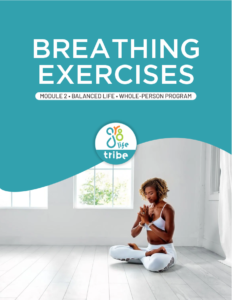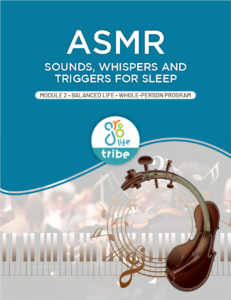MODULE 3
Resilience
Shifting your relationship with stress is important inner work that ultimately contributes to greater resilience, a cornerstone of sustainable transformation.
Increasing Resilience
Resilience can be defined as the ability to recover from or adapt to changes or difficulties. Being resilient doesn’t mean you won’t experience adversity. In fact, you might experience more adversity! For example, you might be willing to take more risks because you know you’re capable of adapting to possible outcomes.
How to strengthen resilience is a topic of much current scientific study. Thanks to the brain’s neuroplasticity, resilience is a learned behavior that anyone can develop. Just like strengthening a muscle, building resilience requires intention, time, and commitment. When approached from a personal growth mind-set, it can be an empowering and even joyful process.
It can become a vicious cycle: You don’t sleep well, so you feel tired and stressed the following day. As a result, you require more caffeine to stay alert and focused. You also crave more sugar and simple carbohydrates for energy. Maybe you nap or skip your exercise because you’re too tired. All these habits perpetuate the cycle of poor-quality sleep.
Cultivate Resilience
Visiting teacher Ellen Vora, MD, shows you how to set up your life for resilience.



